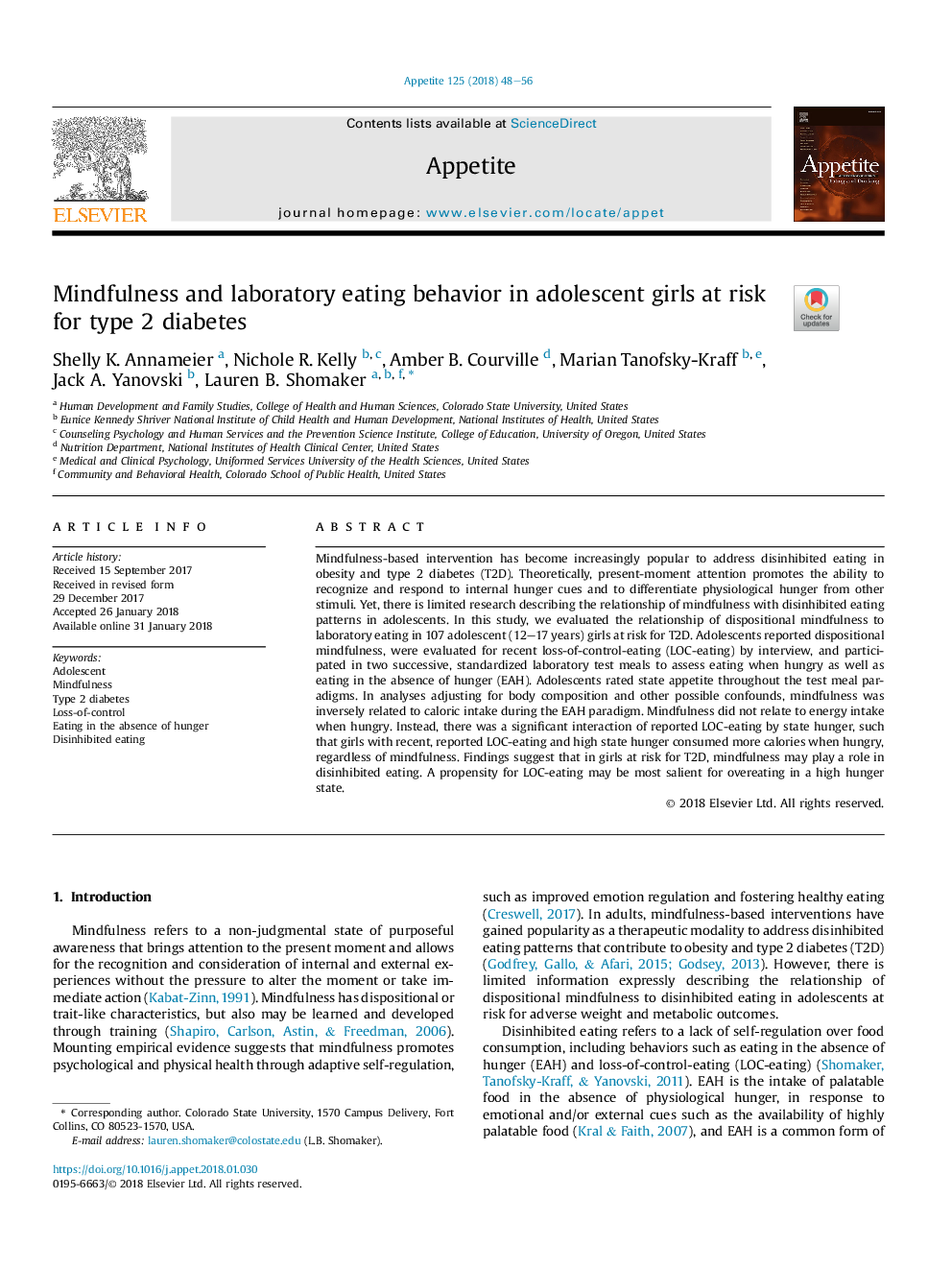ترجمه فارسی عنوان مقاله
رفتار ذهنی و خوردن غذا در دختران نوجوان خطر ابتلا به دیابت نوع 2
عنوان انگلیسی
Mindfulness and laboratory eating behavior in adolescent girls at risk for type 2 diabetes
| کد مقاله | سال انتشار | تعداد صفحات مقاله انگلیسی |
|---|---|---|
| 119760 | 2018 | 9 صفحه PDF |
منبع

Publisher : Elsevier - Science Direct (الزویر - ساینس دایرکت)
Journal : Appetite, Volume 125, 1 June 2018, Pages 48-56
ترجمه کلمات کلیدی
نوجوانان ذهن آگاهی، دیابت نوع 2، از دست دادن کنترل، خوردن در غیاب گرسنگی، خوردن محروم،
کلمات کلیدی انگلیسی
Adolescent; Mindfulness; Type 2 diabetes; Loss-of-control; Eating in the absence of hunger; Disinhibited eating;

